Have you ever been listening to a podcast or music and suddenly the volume gets too loud or too quiet? It’s really frustrating when you have to keep adjusting the volume knob just to hear everything clearly. That’s where audio compressors come in handy! These tools are like magic buttons that make all the sounds in your audio file stay at a comfortable level.
Audio compression is one of those things that might sound technical, but it’s actually pretty simple once you understand it. Basically, it helps balance out the loud and quiet parts so your listeners don’t get surprised by sudden volume changes. Whether you’re making podcasts, recording music, or creating videos, learning about audio compression can really level up your sound quality.
What Exactly Do Audio Compressors Do?
Let me break it down in simple terms. Audio compressors work by controlling what’s called the “dynamic range” – that’s just a fancy way of saying the difference between the loudest and quietest parts of your audio. Think of it like this: when someone whispers and then suddenly shouts in a recording, the compressor helps make that transition smoother so your ears don’t get shocked.
Good audio compressors can make a huge difference in how professional your content sounds. They’re not just for studio engineers anymore – nowadays, there are plenty of options that regular people can use without needing a degree in audio engineering!
Why Balanced Audio Matters
When all parts of your audio are at a similar volume level, it’s much easier to listen to. You won’t have to constantly reach for the volume control, and your audience can focus on what you’re saying rather than being distracted by volume jumps. This is especially important for things like podcasts or interviews where people want to hear every word clearly.
Making Listening More Enjoyable
There’s nothing worse than having to constantly adjust your volume while listening to something. With proper compression, the volume stays consistent throughout, making the whole experience much more pleasant. Your listeners will thank you for not making them jump out of their seats when a loud part suddenly comes on!
Getting That Professional Sound
Even if you’re just starting out, using a good compressor can make your audio sound like it was made by professionals. It adds that polished touch that makes people take your content seriously. In today’s world where everyone is creating content, having great audio quality can really make you stand out from the crowd.
Tools for Everyone
The best part is that you don’t need expensive equipment or software to get started with audio compression. There are tons of options available, from free online tools to affordable software programs. Many of them are designed to be user-friendly, so even if you’re not tech-savvy, you can still get great results.
Saving Time on Editing
Manually adjusting volume levels throughout a recording can take forever! Audio compressors automate this process, saving you hours of editing time. This means you can focus more on creating great content and less on tedious technical work.
Best Audio Compression Tools for Computer Users
If you’re working on a computer, you’ve got some really great options for compressing your audio files. Here are three of the most popular and effective choices that work well on Windows and Mac computers.
CapCut Desktop Video Editor: Great for Beginners and Pros
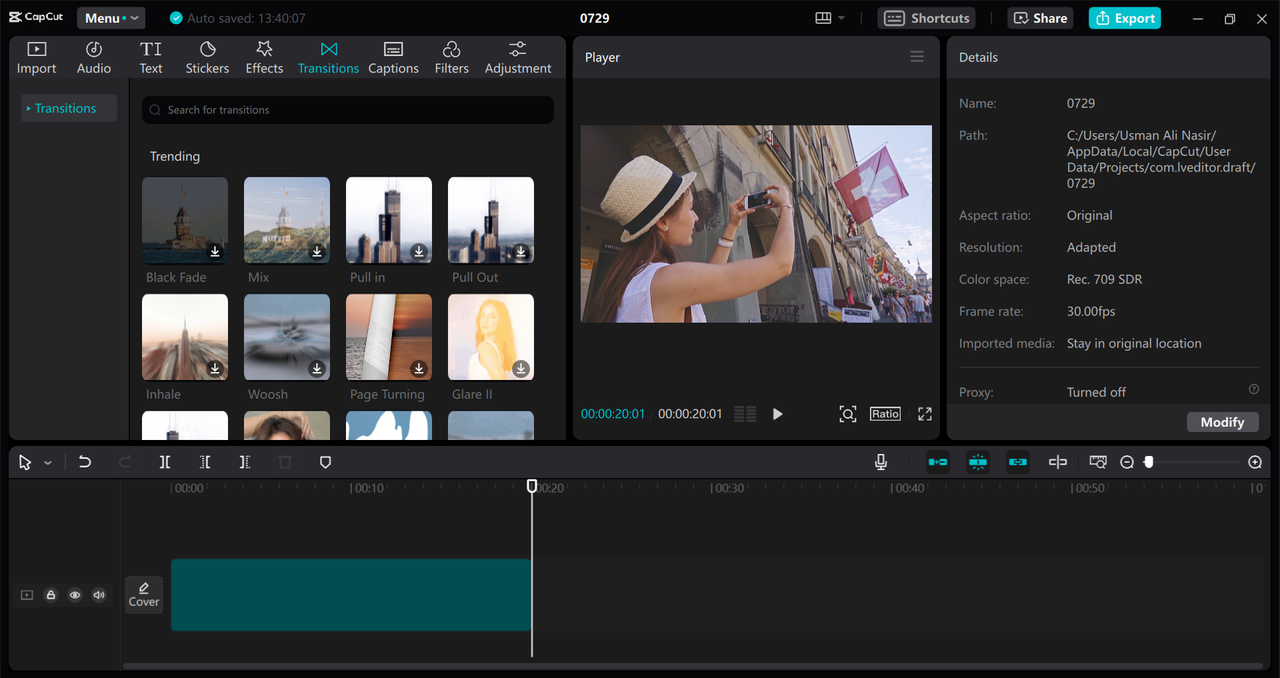
CapCut isn’t just for video editing – it’s actually a really powerful audio tool too! What makes it special is how easy it is to use. You don’t need to be a technical expert to figure it out, which is perfect if you’re just getting started with audio editing.
The interface is clean and straightforward, with all the tools you need right where you’d expect them to be. It supports pretty much every audio format you can think of, so you don’t have to worry about compatibility issues. The processing is also really fast, which means you won’t be sitting around waiting for your files to compress.
One of the coolest features is the noise reduction tool. This helps clean up background sounds like humming or static that might be distracting in your recordings. There’s also audio normalization which helps keep your volume levels consistent throughout your entire project.
How to compress audio with CapCut:
Upload your audio: Open the program and click the import button to bring your audio file into the editor
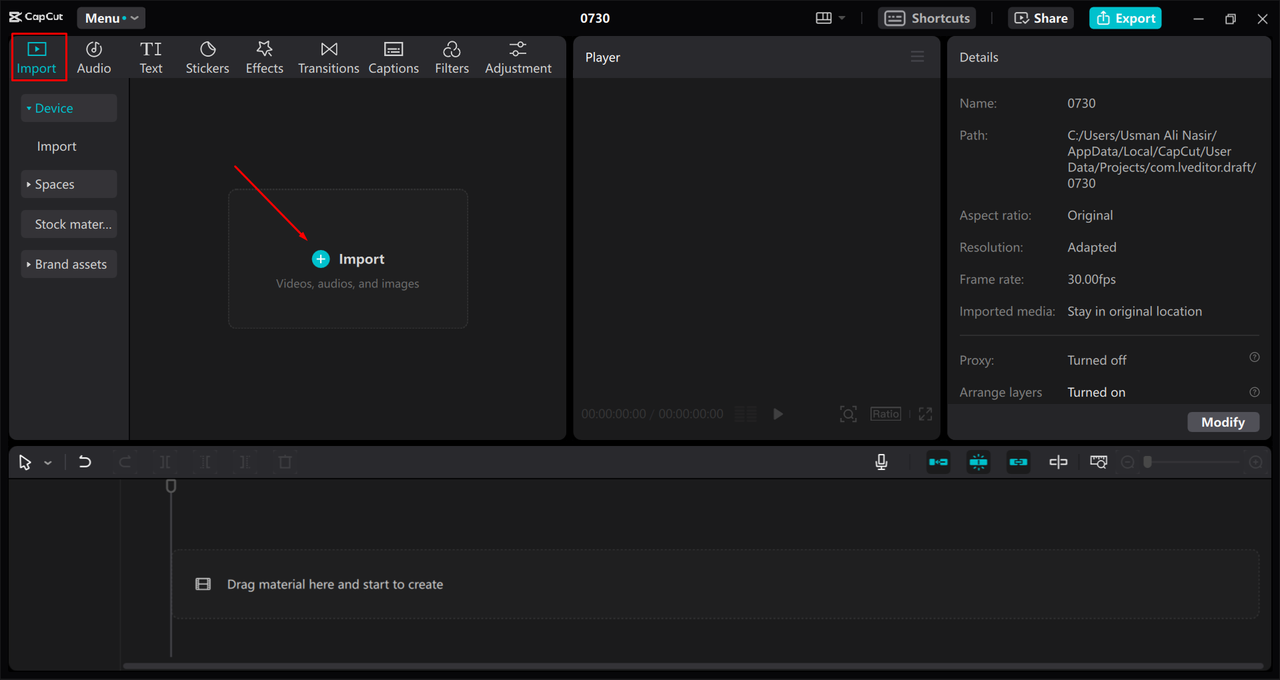
Make your adjustments: Trim out any parts you don’t need, reduce background noise, and adjust the settings to get the sound just right
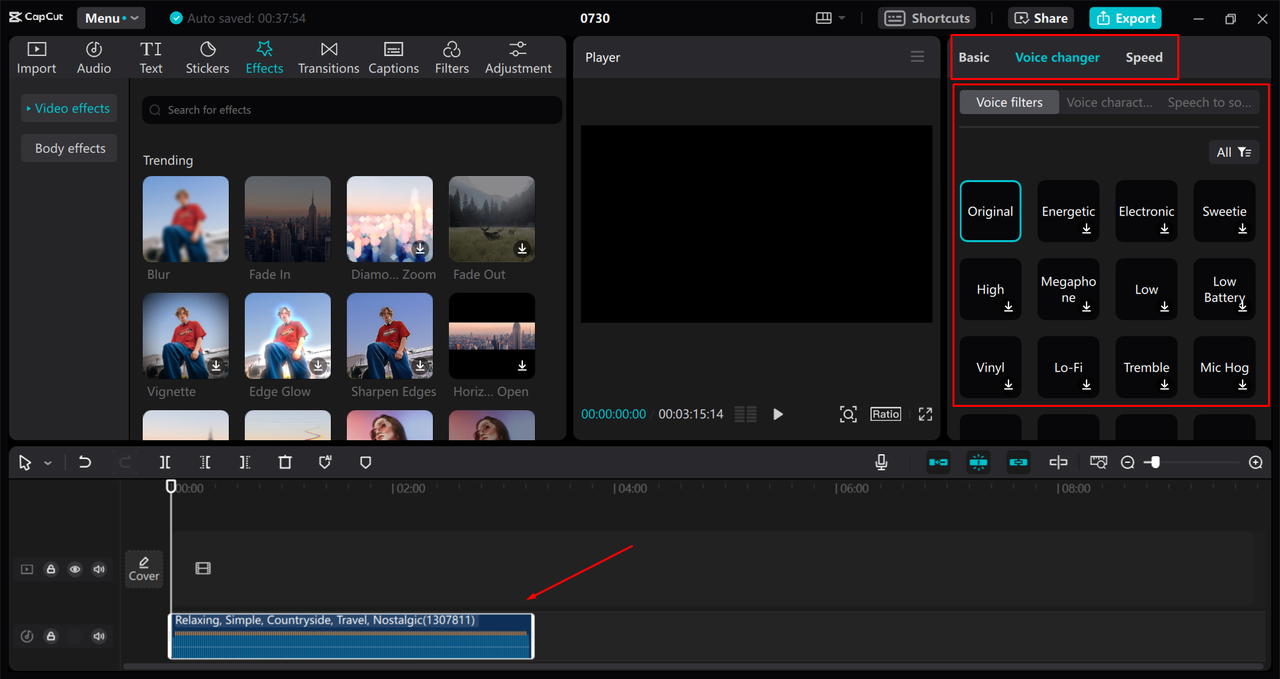
Export your compressed file: Choose your format and save your newly compressed audio
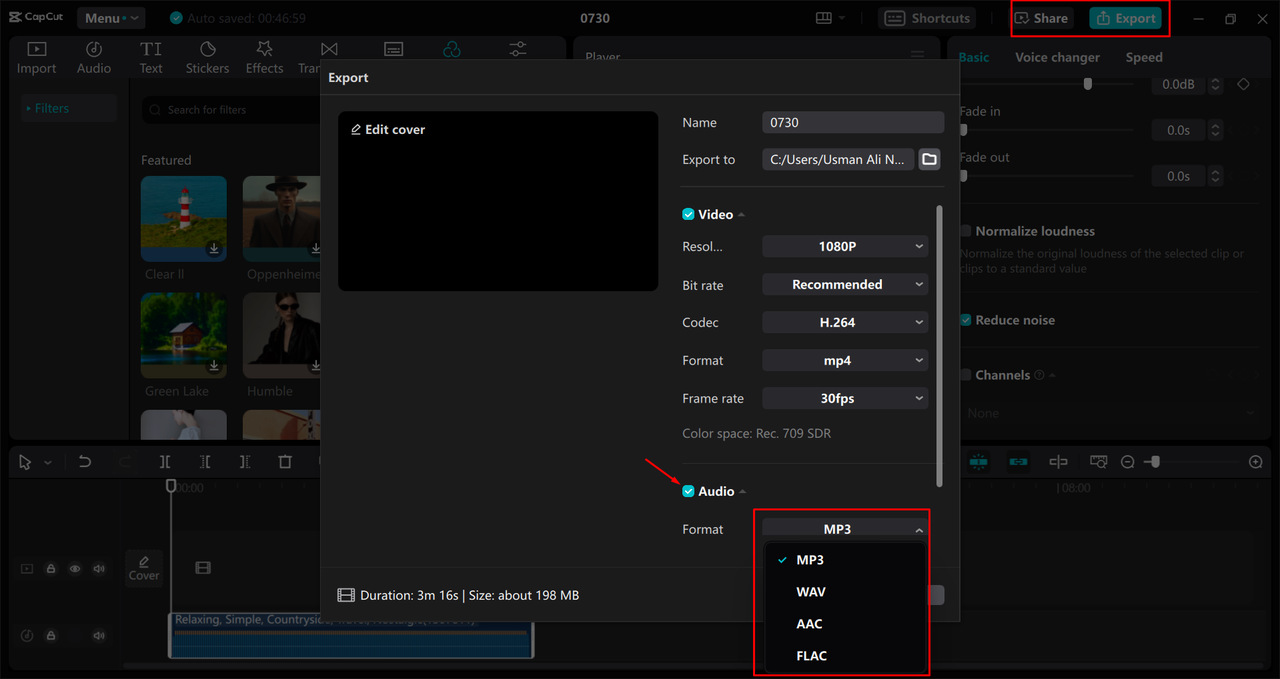
CapCut — Your all-in-one video & photo editing powerhouse! Experience AI auto-editing, realistic effects, a huge template library, and AI audio transformation. Easily create professional masterpieces and social media viral hits. Available on Desktop, Web, and Mobile App.
Freemake Audio Converter: Simple and Straightforward
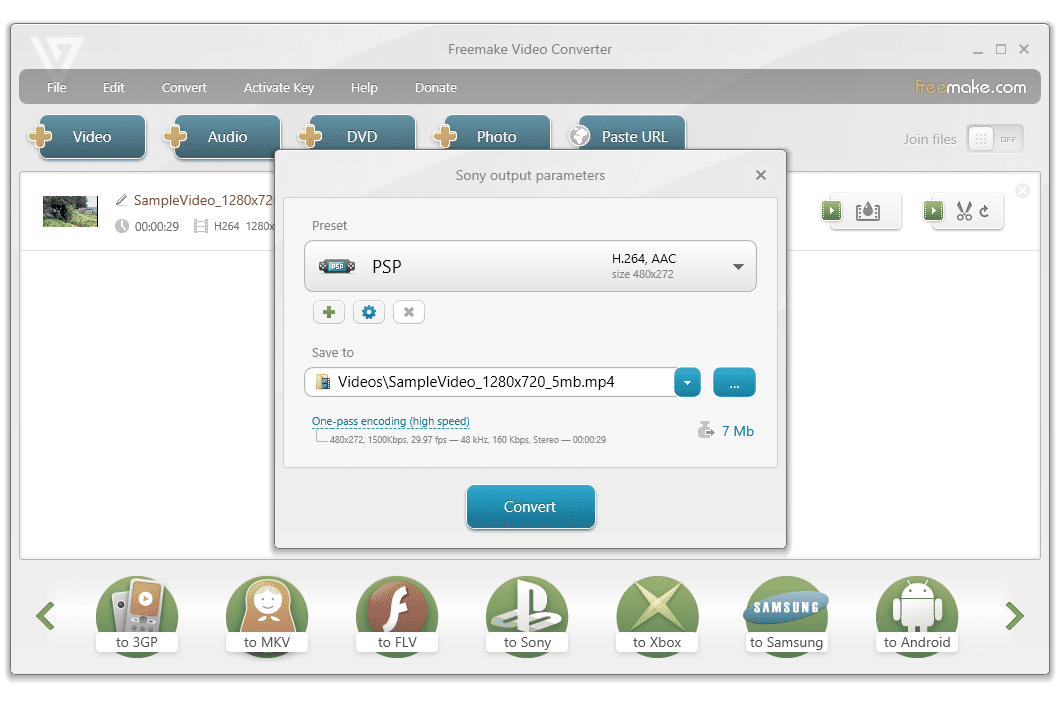
Freemake is another great option, especially if you’re looking for something that’s really easy to use. The drag-and-drop interface makes it super simple to add your files, and you can convert multiple files at once which saves a ton of time if you’re working with lots of audio.
It works with all the common formats like MP3, WAV, and FLAC, so you probably won’t run into any format compatibility issues. The conversion process is quick, and the interface is clean and uncluttered, which makes it good for people who don’t want to deal with complicated settings.
WinZip: More Than Just File Compression
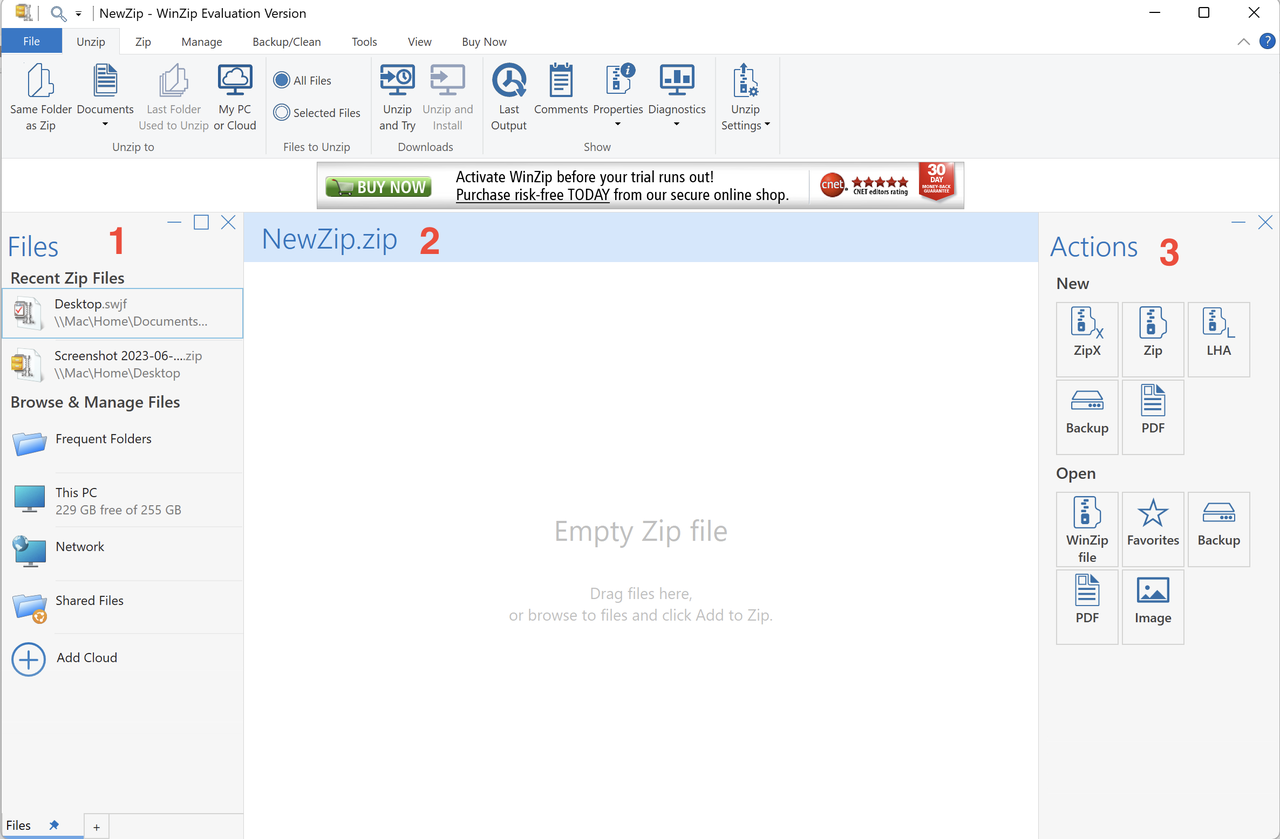
Most people know WinZip for compressing regular files, but it actually works pretty well for audio too! While it might not have all the advanced audio-specific features of some other programs, it’s great if you already have it installed and just need to quickly reduce some file sizes.
The encryption features are also nice if you’re working with sensitive audio content that you want to keep secure. Plus, the cloud integration makes it easy to save your compressed files directly to your favorite cloud storage services.
Online Audio Compression Tools
Sometimes you just need to quickly compress a file without downloading any software. Online tools are perfect for these situations – you can just open a website in your browser, upload your file, and download the compressed version. Here are three of the best online options.
OnlineConverter: No Download Needed
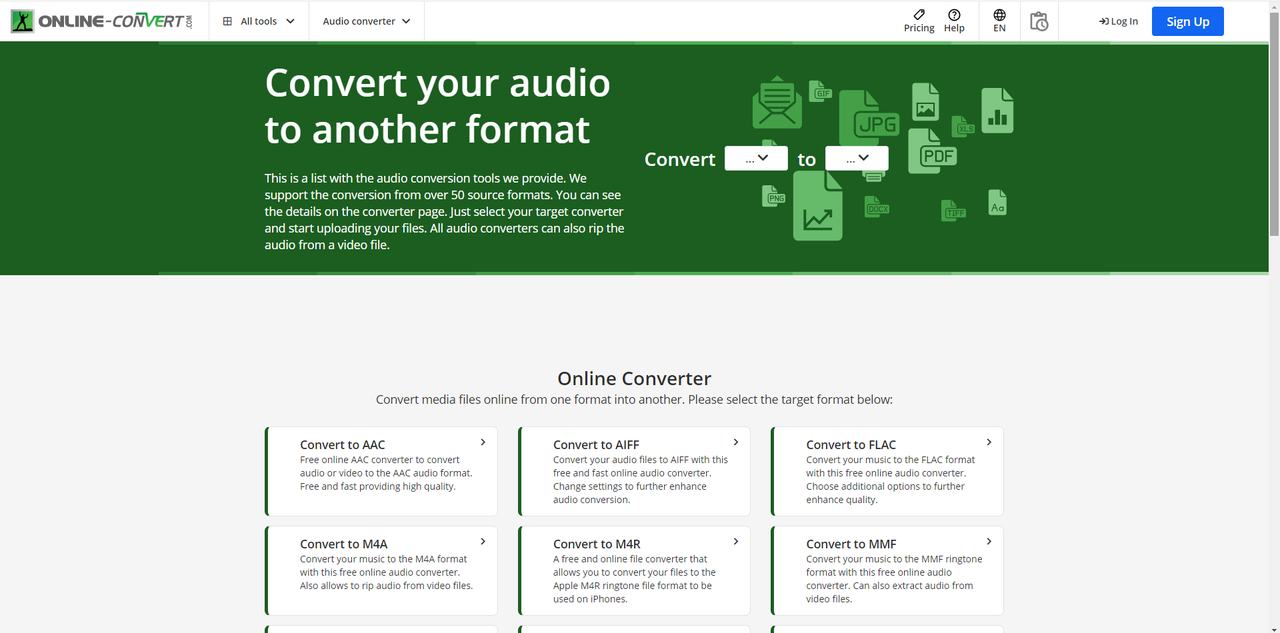
This is probably one of the simplest online tools out there. There’s no registration required, no software to download – you just go to the website, upload your file, and download the compressed version. It supports multiple audio formats and the process is really straightforward.
The interface is barebones but effective. You won’t find a lot of advanced settings here, but if you just need to quickly reduce a file size without any fuss, this is a great option. The conversion is fast, and since it’s all done in your browser, you don’t have to worry about installing anything on your computer.
Media.io: User-Friendly Online Compression
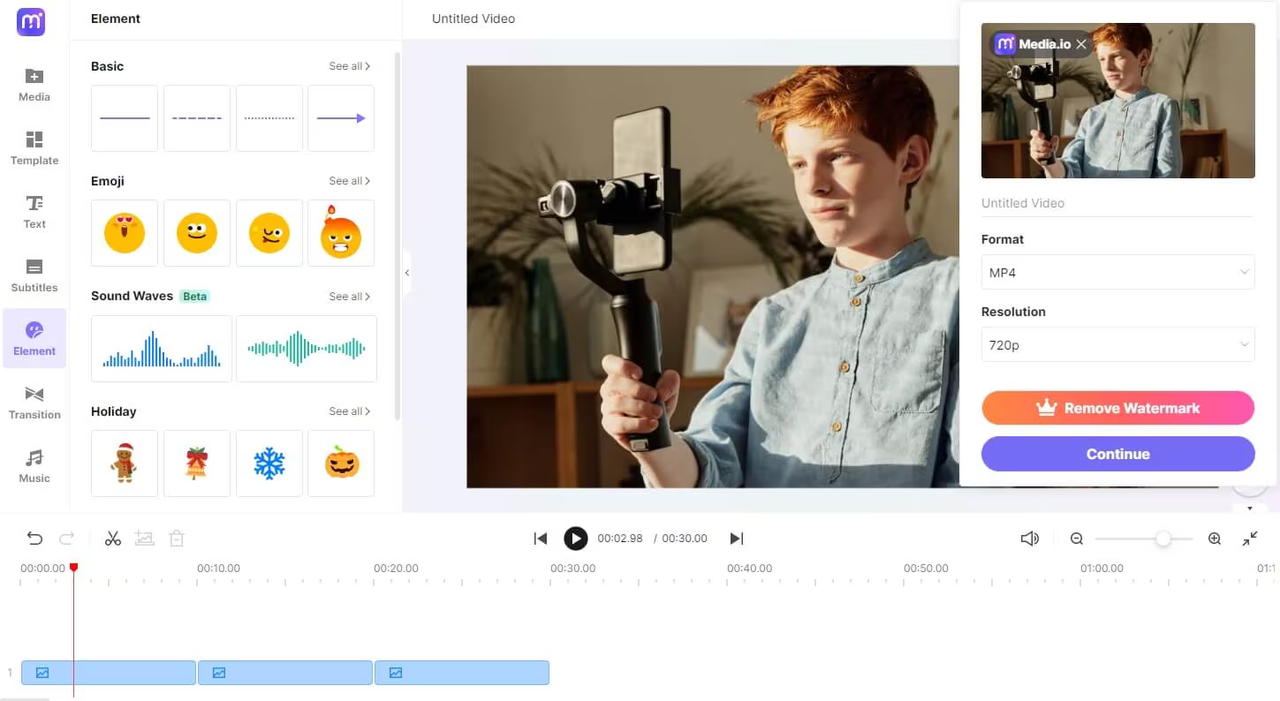
Media.io offers a slightly more polished experience compared to some other online tools. The interface is modern and clean, and the process is just as simple: upload, compress, download. What’s nice about Media.io is that it also offers some basic editing features before you compress your file.
You can trim your audio, adjust volume levels, and make other simple edits right in the browser before compressing. This can be really handy if you need to make quick adjustments without opening a separate editing program. The free version does have some file size limitations, but for most casual users, it’s more than enough.
Aiseesoft: Quality Online Compression
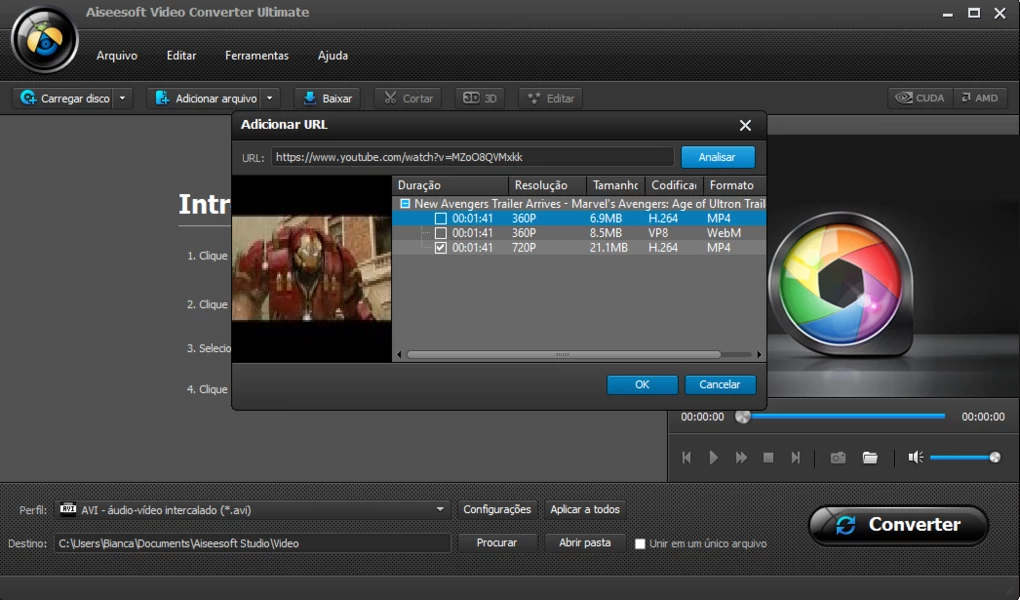
Aiseesoft stands out because it does a really good job of maintaining audio quality while still reducing file size. Some compressors make your audio sound tinny or artificial, but Aiseesoft keeps things sounding natural while still achieving good compression rates.
The online interface is clean and easy to navigate, and the compression process is quick. If you find yourself using online compression tools frequently, they also offer a desktop version with more features. The free online version does have some limitations, but it’s perfect for occasional use.
Mobile Audio Compression Apps
In today’s world, we’re doing more and more on our phones, and audio compression is no exception! Whether you’re recording podcasts on the go or need to compress audio files while away from your computer, these mobile apps have you covered.
M4A Audio Compressor: Solid Mobile Option
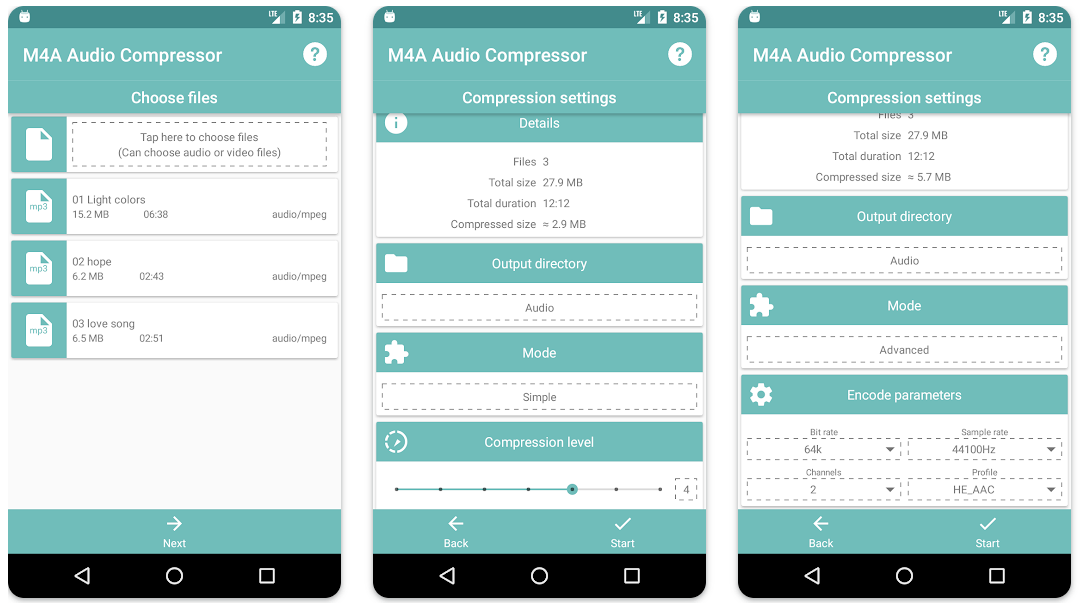
This app is specifically designed for compressing audio files on mobile devices. The interface is optimized for touch screens, making it easy to navigate and use. You can compress multiple files at once, which is great if you have several recordings to process.
The quality preservation is impressive – your compressed files will still sound clear and natural. There are adjustable settings so you can find the right balance between file size and audio quality for your needs. The free version does include ads, but they’re not too intrusive.
Lexis Audio Editor: More Than Just Compression
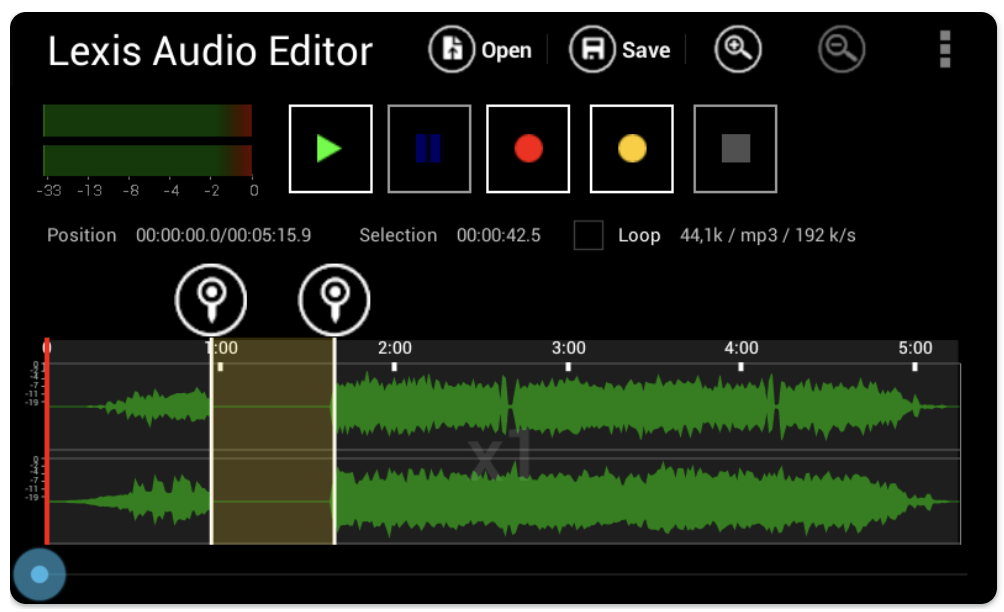
If you need more than just basic compression, Lexis Audio Editor is worth checking out. It includes a full set of audio editing tools alongside its compression features. You can trim, cut, adjust levels, add effects, and then compress your finished product.
The compression controls are more detailed than most mobile apps, giving you greater control over how your audio is processed. This is great if you have specific requirements or want to fine-tune your results. The interface is intuitive despite the advanced features, making it accessible even if you’re not an audio expert.
Audio Compressor App: Simple and Effective
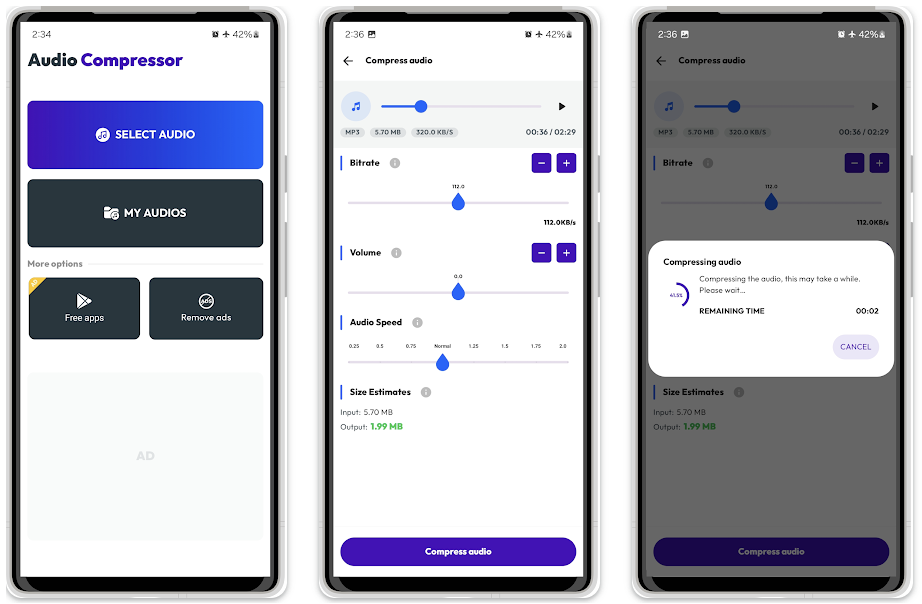
Sometimes you just want something that does one thing well, and that’s exactly what this app offers. It focuses specifically on compression without a lot of extra features that might complicate things. The interface is clean and minimal, making it super easy to use.
Despite its simplicity, it still offers customizable output settings so you can choose your preferred balance between file size and quality. The processing is fast, and the results are consistently good. If you primarily need compression without all the extra editing features, this is a great choice.
Choosing the Right Audio Compressor For You
With so many options available, how do you choose the right one? Here are some things to consider when picking an audio compression tool:
First, think about what you’ll be using it for. Are you working on professional music production, or just compressing some podcast recordings? Different tools are better suited for different tasks. Professional music production might require more advanced features, while podcast compression might prioritize ease of use and speed.
Consider your technical comfort level. Some tools are designed for beginners with simplified interfaces, while others offer advanced controls that might be overwhelming if you’re just starting out. There’s no shame in choosing something simple – better to use a tool you understand than struggle with something too complicated!
Think about your workflow. Do you need to process files in batches? Do you need integration with other software? Do you work across multiple devices? These practical considerations can help narrow down your options.
Don’t forget about format support. Make sure whatever tool you choose supports the audio formats you typically work with. There’s nothing more frustrating than finding the perfect tool only to discover it doesn’t work with your files.
Finally, consider your budget. While there are great free options available, sometimes paying for a tool can get you better features, better support, or better results. Think about how much you’ll be using the tool and whether the investment is worth it for your needs.
CapCut — Your all-in-one video & photo editing powerhouse! Experience AI auto-editing, realistic effects, a huge template library, and AI audio transformation. Easily create professional masterpieces and social media viral hits. Available on Desktop, Web, and Mobile App.
Wrapping Up
Audio compression might seem technical, but it’s actually a pretty straightforward concept once you understand the basics. The key thing to remember is that good compression should make your audio more consistent and pleasant to listen to without making it sound artificial or processed.
Whether you choose a desktop program, an online tool, or a mobile app depends on your specific needs and workflow. The good news is that there are great options available at every skill level and budget. Don’t be afraid to try out a few different tools to see which one feels right for you.
Remember that like any skill, audio compression takes some practice to get really good at. Don’t get discouraged if your first attempts aren’t perfect – keep experimenting with different settings and techniques, and you’ll gradually develop an ear for what sounds good.
Common Questions About Audio Compression
Can I really compress audio on my phone?Absolutely! The mobile apps available today are quite powerful and can handle most compression tasks right on your device. This is super convenient if you’re recording on the go or need to process files away from your computer.
Will compression make my audio sound worse?It can if you overdo it, but when used properly, compression should make your audio sound better, not worse. The goal is to create a more consistent listening experience, not to squash all the life out of your recordings. With modern tools and a little practice, you can achieve great results without sacrificing quality.
How much should I compress my audio?This depends on what you’re using the audio for. Music typically uses less compression than spoken word content like podcasts. The best approach is to use your ears – if it sounds good, it probably is good. When in doubt, err on the side of less compression rather than more.
Do I need expensive equipment to get good results?Not at all! While professional studios use expensive hardware compressors, the software options available today are incredibly capable. Many free or affordable tools can produce results that are perfectly good for most purposes. The most important factor is your knowledge and skill, not the price of your tools.
Can I undo compression if I don’t like the results?It’s always best to work on a copy of your original file rather than compressing the only version you have. Once audio is compressed, you can’t really “uncompress” it back to the original quality. Most compression involves some permanent changes to the audio data, so always keep backups of your uncompressed originals.
Some images courtesy of CapCut
 TOOL HUNTER
TOOL HUNTER



